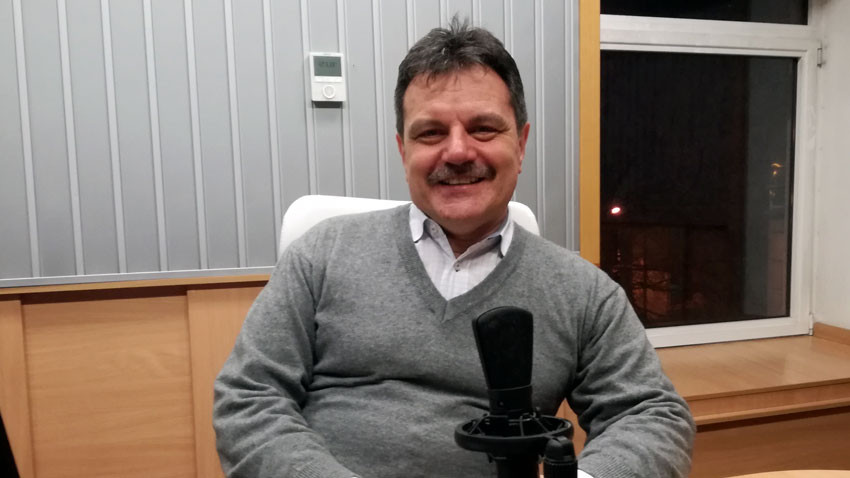Satellite images of air pollution levels over Europe provide evidence of the connection between dirty air and the severity of the Covid-19 infection.
“The zones with higher pollution levels coincide with great precision with the places where the course of the coronavirus disease among the population is more severe,” pulmonologist Dr. Alexander Simidchiev explained for the BNR’s Horizont channel.
In his words, occurrence of the disease among people living in more polluted areas is higher and the course of the disease is more severe. The reason: the fine particulate matter causes the immune reaction of the mucus membrane of the respiratory system to change. “This means that when we inhale filth, dirty air, the immune system starts to battle the dirty air instead of the bacterial or viral agents.”

“Filter masks which effectively reduce fine particulate matter can effectively stop both the coronavirus infection, and the pollution of the air. Because viruses spread via particles, and pollution also spreads via fine particulate matter. So, masks with filters can effectively reduce this risk,” the pulmonologist explains.
Dr. Simidchiev points out that smokers are much more damaged in terms of vascular function and lung condition and that increases the risk if they contract Covid-19. Tobacco smoking affects the circulatory system, smokers often have atherosclerosis and ischaemic heart disease which are coronavirus risk factors.
Chronic obstructive pulmonary disease (COPD) is the result of the long-term impact of the environment on the lungs. Smoking is the single biggest factor for this disease even though with ¼ of the patients the cause is different, Alexander Simidchiev says.
“People with chronic obstruction of the respiratory tract are much more careful and contract the coronavirus infection less often than the average healthy person,” the expert says.
Concern among people with chronic diseases is escalating as the pressure the epidemic is putting on hospitals in the country mounts. 5,629 people are currently being treated in hospital, 313 of them are in intensive care. Though their number is going up all the time, Minister of Health Kostadin Angelov says that the problem is not in a shortage of hospital beds, but in a shortage of medical experts. The number of medical staff with confirmed Covid-19 has been growing, and, according to latest data, now stands at 4,330.
One of the ways to reduce the pressure on medical establishments is for the state to launch an awareness-raising campaign about the disease, says Prof. Georgi Mihailov. He is an MP from the Bulgarian Socialist Party, but is currently practicing as a doctor at the hospital in Svishtov.
“Because on the ground we see the stress of the nation. People who are not in need of hospital treatment are insisting on being admitted to hospitals. It should be understood that this is not a particularly dangerous infection, with a mortality rate of 3 per 1,000. A campaign should be launched to help each member of the public understand that the majority of patients can be treated at home. That they must not self-medicate, as is currently the case, that people should not “pump” their bodies with corticosteroids or heparin,” Dr. Mihailov says in an interview for BNR.
Compiled by Elena Karkalanova
Three days in mid-July are given special attention in the Bulgarian calendar. 15, 16 and 17 July are known as the Dog Days or Goreshtnitsi (from goreshto, meaning 'hot') and are considered to be the hottest time of the year in Bulgaria. During this..
Summer in Bulgaria is an exciting time, not only for tourists. June and July are intense months for young people finishing secondary school and about to take the next step in their lives by choosing a university and a career path. In recent years,..
Colourful, ethereal, and subtle, butterflies are everywhere around us – day and night, in the city and in the countryside. However, zoologists warn that their butterfly dance has become increasingly rare in recent years in European countries , including..
From today until Sunday, Samokov is hosting the Raspberry Festival and the National Exhibition of Raspberry Producers, BTA reports. The event..
Until July 13, 2025, Hisarlaka Park near the town of Kyustendil is welcoming thousands of tourists, adventurers and history enthusiasts.The fifth..
At the beginning of the last century, Dubai was a tiny town of around 1,200 people with a small port on the Persian Gulf. Thanks to its geographical..

+359 2 9336 661
